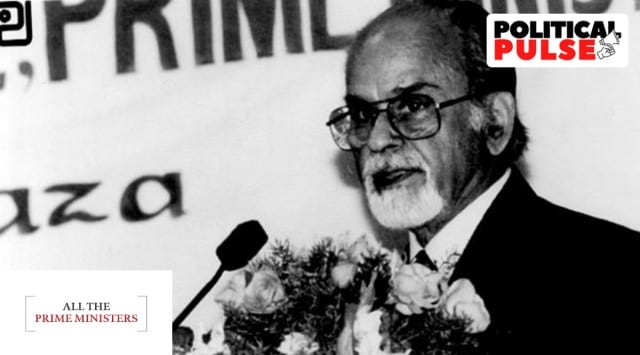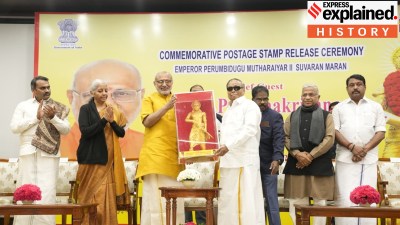
*************
Inder Kumar Gujral served as the 13th Prime Minister of India from April 21, 1997, to March 19, 1998 – a period of 332 days.
A three-term Rajya Sabha member and two-term Lok Sabha member, Gujral is renowned for his “Gujral doctrine”, a set of five principles to guide India’s foreign policy with regard to its immediate neighbours. He developed this doctrine in 1996, when he was the external affairs minister in the H D Deve Gowda-led United Front (UF) government.
Born on December 4, 1919, at Jhelum (now in Pakistan), Gujral went to D.A.V. College, Haily College of Commerce and Forman Christian College in Lahore. After the Partition, he moved to India and took a plunge in politics. He served as the vice-president of the New Delhi Municipal Council (NDMC) during 1959-64.
In 1964, Gujral entered Parliament when he was elected as a Congress member of the Rajya Sabha from Punjab. After completion of his first term in 1970, he was re-elected to the Upper House.
It was during his two consecutive terms in the Rajya Sabha that Gujral served as a minister in the Indira Gandhi government and held various portfolios.
Story continues below this ad
In 1967, he became the minister of state (MoS), parliamentary affairs and communications. In 1969, he was appointed as the MoS, information and broadcasting (I&B) and communications.
When the Congress party split in 1969, Gujral remained in the Indira camp. After the Indira -led Congress won a thumping majority in the 1971 Lok Sabha polls, Gujral was inducted into the new Indira ministry as the MoS, works, housing and urban development, during 1971-72.
He was the I&B minister from 1972 to 1975 and then moved to the planning ministry. Congress leader Vidya Charan Shukla was brought in as the new I&B minister soon after the Indira government imposed Emergency in the country.
Gujral served in the planning ministry till 1976, following which he was appointed as an ambassador to USSR (cabinet rank), where he served till 1980.
Story continues below this ad
Subsequently, he came close to VP Singh, who emerged as a major challenger to the then Rajiv Gandhi-led Congress dispensation in the late 1980s and went on to become the PM.
In 1989, Gujral contested the general elections to the 9th Lok Sabha on the Janata Dal ticket from Punjab’s Jalandhar and won by defeating a Congress candidate with a big margin. Singh inducted him as the external affairs minister in his Cabinet. The Singh government however could not complete its tenure.
In 1992, Gujral got elected to the Rajya Sabha for his third term from Bihar and served on various committees till June 1996, when he was appointed the external affairs minister in the Gowda government. He also held the water resource portfolio.
When the Gowda government was brought down by the Sitaram Kesri-led Congress, Gujral emerged as the UF’s choice as the next PM.
Story continues below this ad
Gujral was sworn in as the PM on April 21, 1997 and remained in office till March 19, 1998, when the Congress again withdrew its support to the UF government.
During his brief prime ministerial tenure, Gujral had famously told the Lok Sabha that one who wants to act and work in public life should keep himself above all suspicion. “From the first day I have been saying that any person in public life, be he a minister or be he a chief minister or anybody who is charged for corruption should step down voluntarily… I am saying again today that anybody who wants to act and work in public life should keep himself above all suspicion because unless we build that type of probity in our life, life can never go on,” Gujral had said in the Lower House on July 24, 1997.
When the elections were held for the 12th Lok Sabha in 1998, Gujral again contested from Jalandhar and won. This was his last term as an MP. He passed away on November 30 in 2012.
India’s longest-serving prime ministers


































